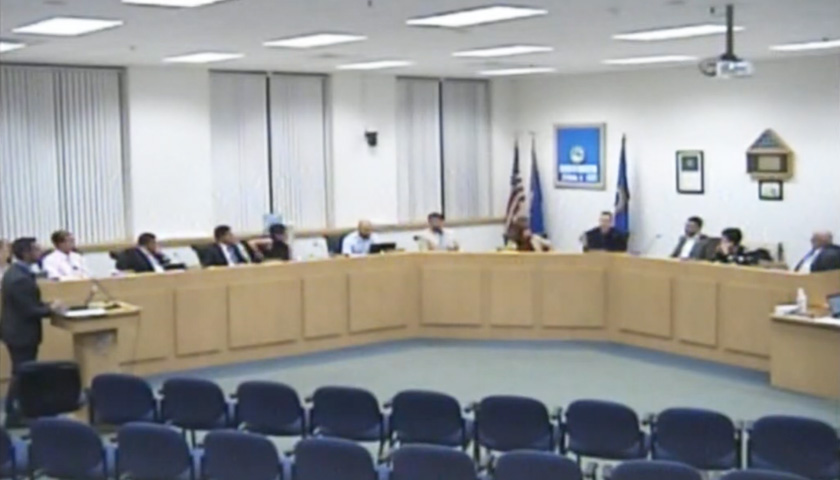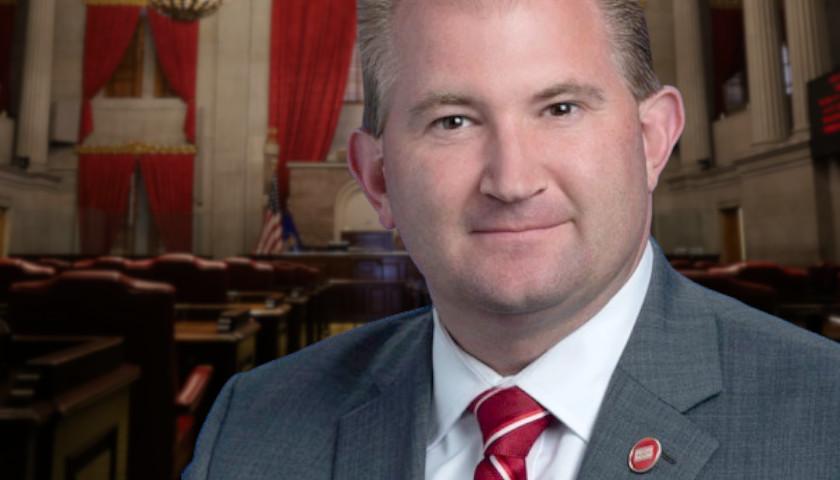A Southington High School English teacher’s student worksheet that defined terms often associated with the concepts of Critical Race Theory and radical gender theory drew anger from parents, students, board of education officials, and members of the community.
School board members said they were unaware of the three-page worksheet packet until they read about it on social media.
According to Patch, some students at the high school reportedly were upset when they received the worksheet on the first day of school on September 1, and one student brought it to the attention of a counselor.
#ICYMI: A Southington teacher is being questioned about a worksheet that has parents and students upset. https://t.co/wWeuJM5bWZ pic.twitter.com/MQA5eH4t60
— WFSB Channel 3 (@WFSBnews) September 10, 2022
WFSB News tweeted part of the worksheet that included definitions for terms such as:
Indigenous/American Indian: Indigenous peoples of the United States are commonly known as Native Americans, American Indians, or Alaska Natives. Indigenous refers to the concept of a culture that has not migrated from its homeland, and was not a settler or colonial population.
Marginalization: The treatment of a person or group as insignificant or peripheral. Socially, marginalization involved leaving such people/groups out of decision making that will impact them in positive or negative ways.
Social Justice: Justice in terms of the distribution of wealth, opportunities, and privileges within a society.
Transgender: Identifying with the opposite gender assigned due to one’s sex.
White Privilege: White privilege refers to societal privilege that benefits white people over non-white people in some societies, particularly if they are otherwise the same social, political, or economic circumstances. Privilege can also be attributed to people of certain sexes, genders, or sex/gender-related identities.
Other terms included in the full worksheet were “institutional racism,” gender pronouns, and the term “Latinx.”
The document also provided students with “sentence stems for a safe-space discussion,” and “concepts we can always keep in mind when conversing,” including:
- It’s important to talk about differences: it’s valuable to see race, culture, and ethnicity.
- Always put People first! E.g.: “People of color,” “People who are Black,” People who have disabilities,” People who are marginalized,” People who were enslaved.”
- Avoid comparing racism, prejudice, and bigotry to being bullied or an idea like “no one likes to be judged.”
- Racism is a systemic issue. If you look the other way or deny that these systems exist, you are part of the problem. You can know in your heart that you don’t hate anyone but still contribute to their oppression.
Joseph Baczewski, Southington school board vice chairperson, said during the board meeting “it’s discouraging to sit on this board and to find things like this out from social media.”
“It’s troubling to me,” he continued. “I read the worksheet. Do I agree with it? Absolutely not. However, you know, again, when I see something like this, I look at, look at it as a teaching opportunity. Because that’s what we’re here to do.”
“And, you know, to hear about the white privilege thing again, to hear about all these different things again, like I’m tired of it for this to now be the talk to have,” Baczewski, a Republican, said. “I’m assuming that that’s why the news is here tonight, that this is the issue that we pick out of all the crap going on in the world right now. This is it. The first week of school started negatively, you know, again, like it’s, it’s troublesome, guys, and again, reach out to us. We’re here.”
Parent Jenny Cinquemani, whose family is Puerto Rican, said the lesson’s perhaps “unintended consequence” was to create further racial and gender division.
“To be honest, I’m not even angry,” Cinquemani said, Patch reported. “I am sure that the teacher who put this together did not mean to be hurtful. But it is divisive.”
The parent said listing marginalized populations leads to further harm and pits those groups against each other.
“That shuts down the conversations about race and disparity,” she said.
Southington High School student Ella Perillo said she felt offended all white people appeared to be singled out as being oppressors.
“If my friend is a person of color, I will treat them the same way as everyone is treated, and I expect the same thing in return,” she said. “This is what will cause a divide. There is no white privilege.”
Parent Michael Kryzanski expressed outrage that taxpayer dollars were being spent on lessons on “social justice,” rather than academic subjects.
“I’m paying taxes so my kids can learn how to read, write and communicate properly,” he said. “I’m not paying taxes for them to learn stuff in this document.”
Kryzanski mentioned several of the terms used in the worksheet, repeatedly asking “who gets to decide” that this is what these terms mean.
“Social justice? Why is that in this document?” he asked. “What does it even mean, aside from it being a term politicians use to buy votes?”
“Pretty much every term I’m reading in this document pretty much disgusts me,” Kryzanski said. “This is Critical Race Theory, which is not supposed to be taught in Southington Public Schools.”
Resident Pat Tavalozzi echoed the sentiment that parents have the role of educating their children about sexuality issues.
She referred to the teacher who distributed the worksheet as “a rogue teacher.”
“Our teachers are wonderful teachers in the school, but there are rogue teachers,” she said, adding, “I want to know one question going forward: how are we going to police this if a student didn’t have the courage to go to her administration up at the high school about this?”
Tavalozzi talked about the fear both children and adults experience about speaking their minds against concepts associated with CRT and radical gender theory.
“But if they didn’t have to the courage, the backlash that’s going to come to that student for bringing this forward,” she explained. “They realize, I don’t want to deal with this. They shouldn’t have to think of this every single day they go to school, they shouldn’t have to think about if I say I’m the wrong pronoun, if I say I’m not this, but I don’t believe in this.”
“Why are they under that scrutiny? Why? To protect the class that is really a minority, whereas the majority just want to go to school and get an education and move on with their lives,” she asserted. “This shouldn’t be in their face every single day.”
The Connecticut Star reached out to Joseph Baczewski, Southington school board vice chairperson, for further comment and is awaiting a response.
– – –
Susan Berry, PhD, is national education editor at The Star News Network. Email tips to [email protected].
Photo “Board of Education” by Town of Southington.





